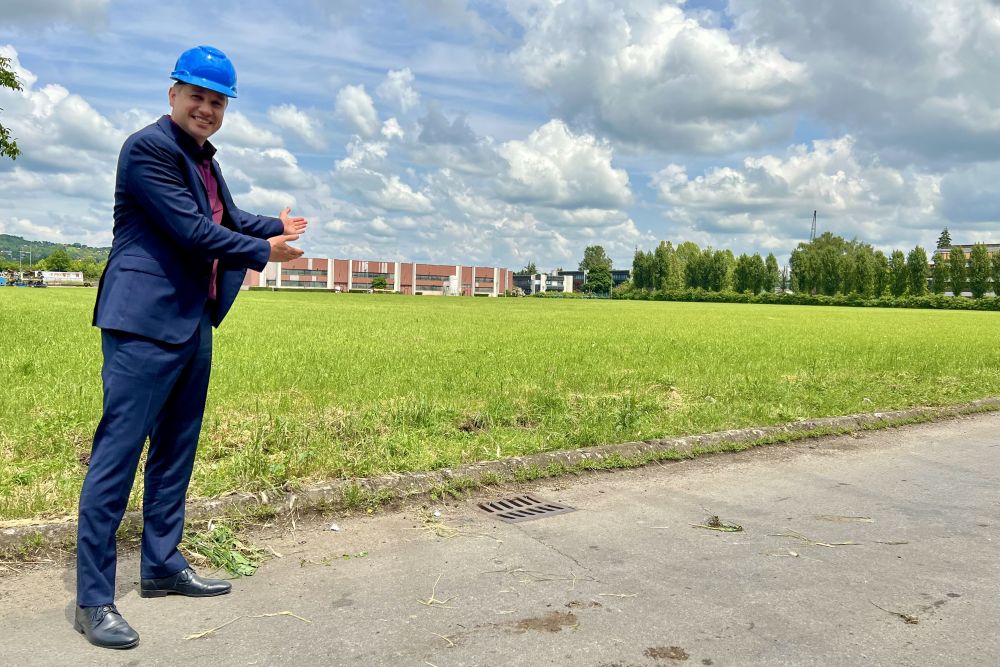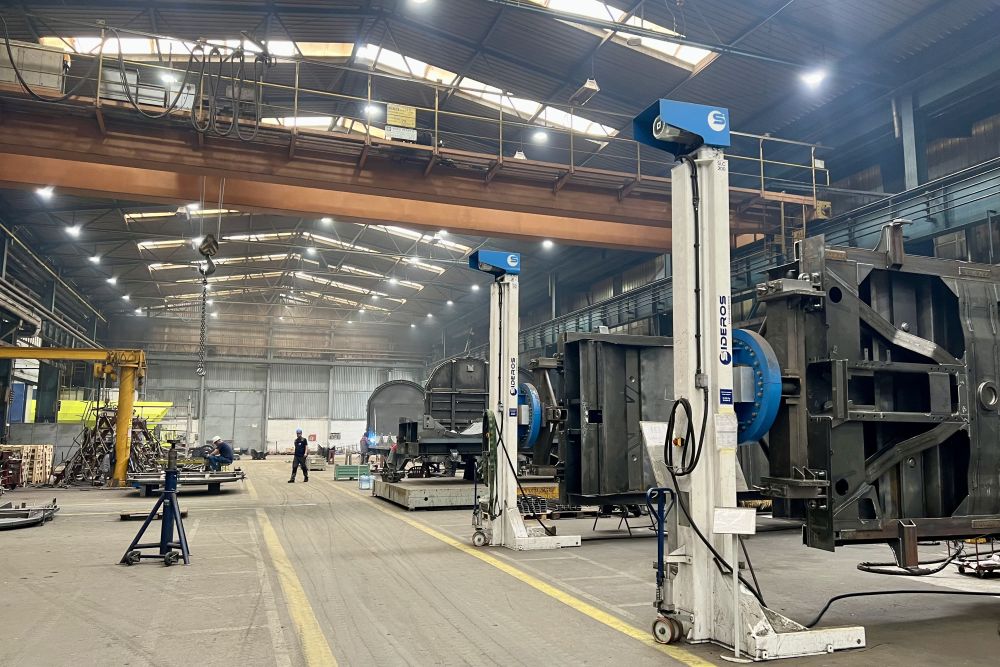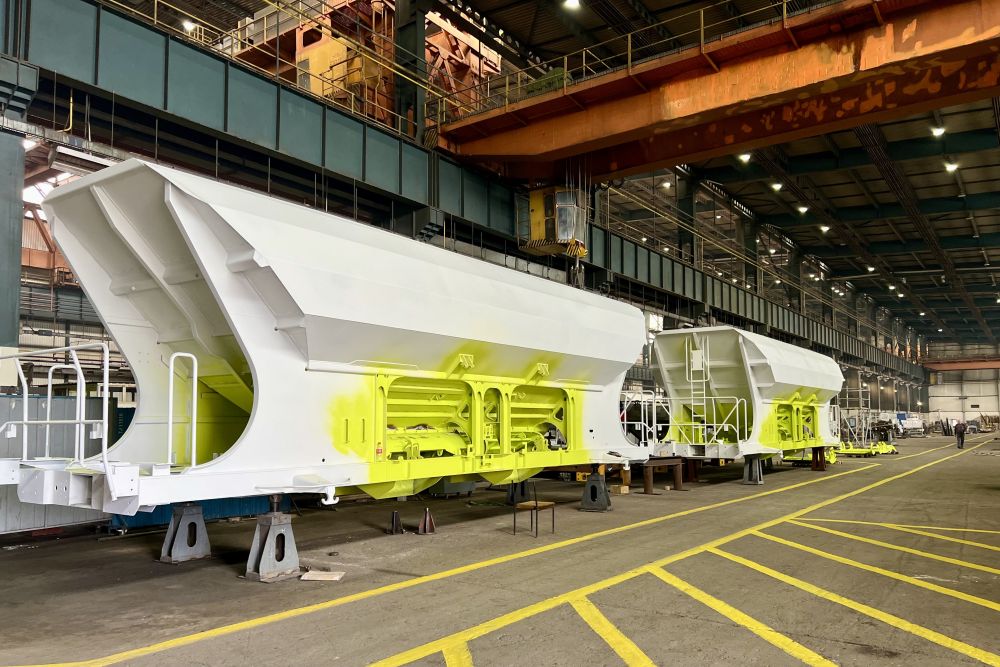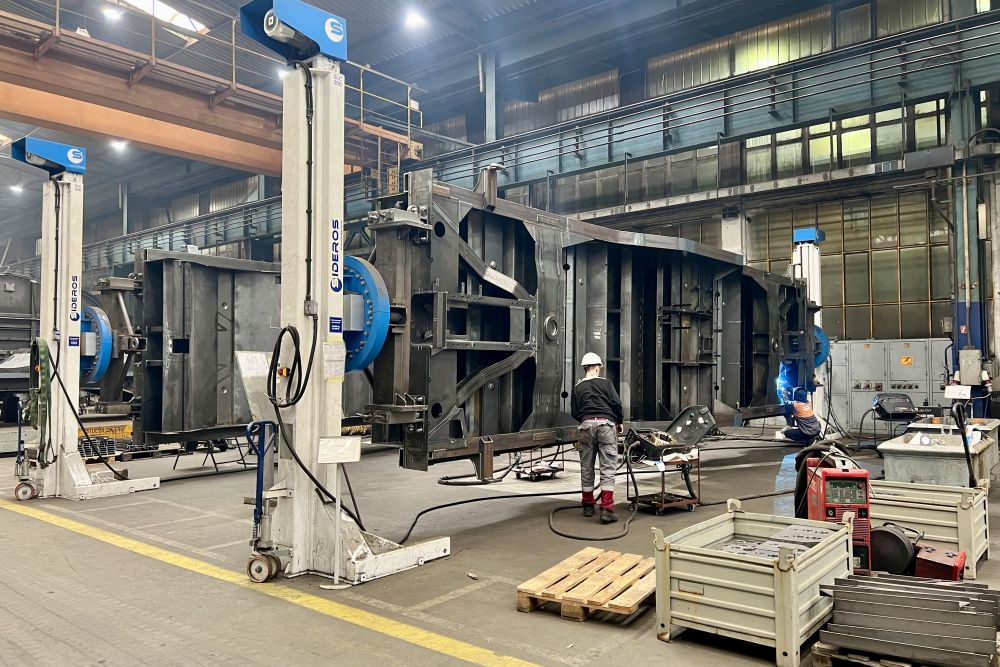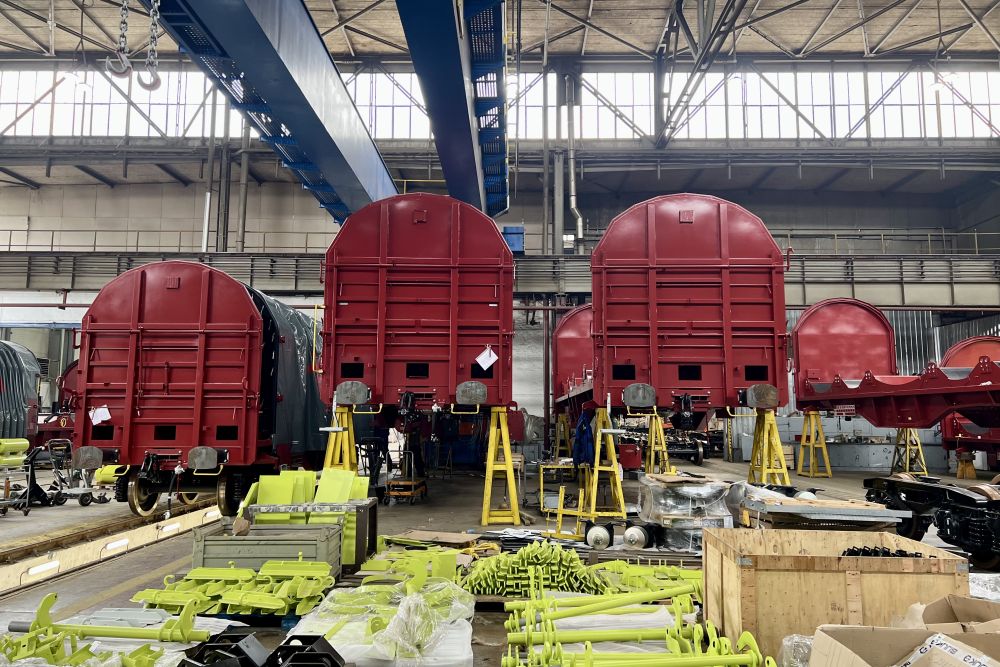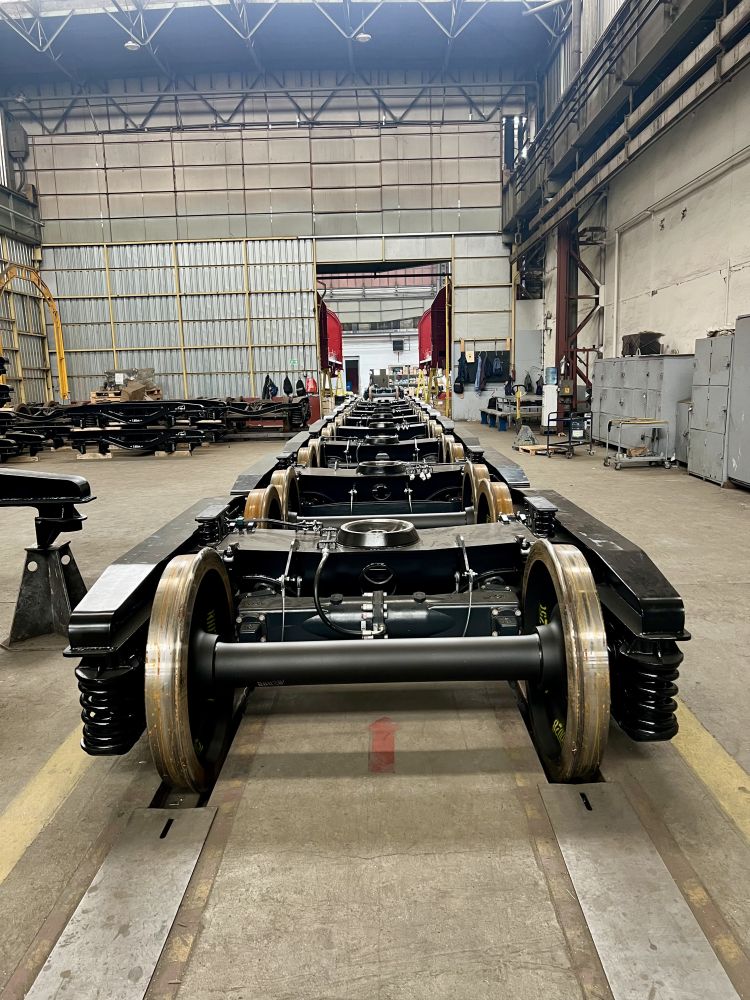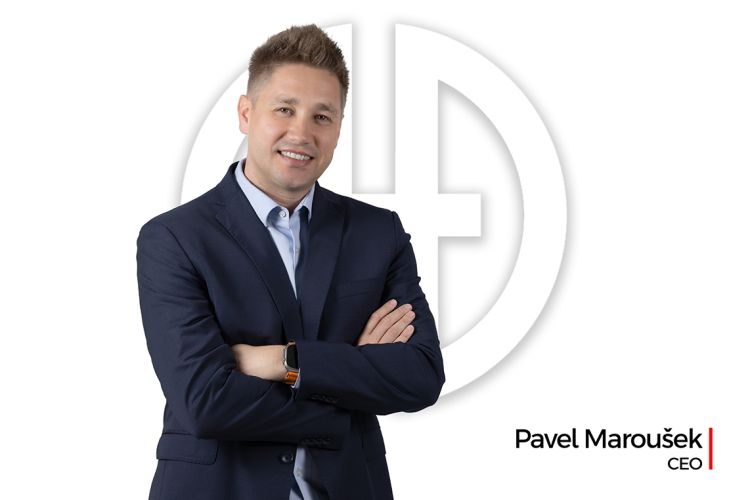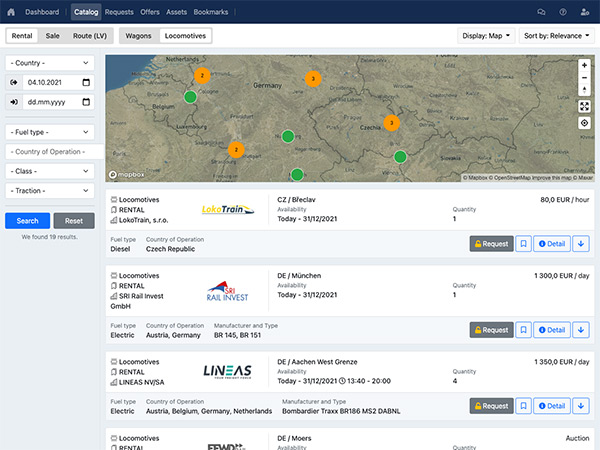Duro Dakovic is a company located on the Croatian-Bosnian border in Slavonski Brod. Its production is divided into two parts - transport and defence. The company wants to change the production ratio, which is currently 95% transport and 5% defence, to 90:10 this year. Pavel Marousek, CEO of the Czech-Croatian company, explained to us how they plan to achieve this right on the factory premises.
RM: What changes have taken place at Duro Dakovic since the arrival of the Czech investor?
Pavel Marousek: The entry of a new investor into the shareholder structure has naturally changed the entire hierarchy within the decision-making processes. Duro Dakovic is now 82% owned by DD ACQUISITION, which is backed by CE Industries and the Promet Group, owned by Jaroslav Strnad and René Matera. I would say that this is probably the biggest change that has taken place here.
From the very beginning there was a clear vision of where we wanted to take Duro Dakovic. Based on that vision, we defined the mission and the strategic goals that we wanted to achieve within a certain year.
RM: And what exactly are these vision and strategic goals?
Pavel Marousek: We want to be a reliable and trustworthy partner for our customers and produce 2,000 wagons for them in 2026. And of course we have to adapt our strategy to everything that is happening in the market right now: from the Russian-Ukrainian war to the energy crisis.
RM: That's exactly what I wanted to ask: has demand changed in any way in relation to the war in Ukraine and the energy crisis in particular? For example, is there an increased demand for coal wagons or wagons for the transport of agricultural products?
Pavel Marousek: It is very interesting how progressive and adaptable this market is and how it was able to react very quickly to the situation. Suddenly the way has opened up for wagons for the transport of light mineral oils, which two years ago everyone wrote off and considered unprofitable. Demand for grain wagons has also increased significantly.
RM: But these two events were not the only ones to affect rail transport. How has the Covidien situation changed the market?
Pavel Marousek: Covid also played an important role in rail transport. In this case it was mainly the increased interest in container wagons due to the transport of goods from China to Europe. Last year there was still a high demand for this type of transport, but the figures for the first quarter show that there has been a significant decline in recent months. This has also led to lower demand for intermodal wagons. As a result, more or less all leasing companies are reviewing their strategic plans and reducing orders for these wagons for 2024 and 2025.
RM: Now you talked about the types of wagons where there has been a change in demand. Your website shows a wide portfolio of wagons, what types are you actually producing now?
Pavel Marousek: Currently, for example, the Shimmns steel coil wagon. It is particularly suitable for the automotive industry. But even in this sector we are now seeing a decline in demand. We are about to launch a new grain wagon, which we presented at the Munich fair. We have signed a major contract for this type of wagon for the second half of 2023 and 2024. And we are planning to build a line of tank wagons, for which we already have orders for the first half of 2024. So we are significantly diversifying, which really allows us to have this broad portfolio. And we're adding a facelift, which means we're constantly looking at how we can improve these wagons to be better than the competition.
RM: You export 100 per cent of those wagons you just talked about. Which countries are your main customers?
Pavel Marousek: Today we work with the biggest leasing companies in Europe, whether it's VTG, GATX, Ermewa or Wascosa. These are our main customers, but we are also looking for other customers and we definitely want to expand our customer portfolio further, which is why we are now planning changes in the sales department.
RM: So what's the ratio of leasing companies to end users - the higher volume you supply to leasing companies, it looks like?
Pavel Marousek: Exactly. That's because the leasing companies are much closer to the end users than we are. And we don't want to bypass the leasing companies, they are strategic partners for us in the future, so we just won't do that kind of business.
RM: In terms of production capacity. Are you going to increase production, are you going to expand the line here in the factory or do you have sufficient capacity?
Pavel Marousek: As far as the Duro Dakovic site is concerned, we have quite a lot of possibilities here because we have areas here in the industrial zone where we can build new halls. This is certainly one of our goals and it is important for us to fulfil the vision we have. This means that we will definitely build a new hall that will enable us to produce the 2,000 wagons that we talked about in 2026.
RM: But the investment in the new hall will not be the only one. When we spoke before this interview, you talked about new investments in the order of CZK 100,000,000 (€4.2 million). Where will this investment go?
Pavel Marousek: If I just mention the bigger ones, they are welding robots for welding chassis, a new laser for cutting sheet metal and also a new blasting station, which will allow us to increase production capacity. Those are probably the biggest. Then of course there are the smaller investments such as positioners, welding power supplies and so on.
RM: Last question, what are your long term plans? Do you want to expand within Croatia or to other countries?
Pavel Marousek: As I said in the introduction, we want to be a stable partner for our customers. This means that we can offer the right skills to our customers. When we talk about the future, one of them is definitely the ability to produce with a focus on sustainability. After all, our motto is that we build wagons for a green or greener future. That is where we see the railway going. The second competence that is essential for a stable cooperation is the ability to adapt quickly to the market. This is certainly key, given what is happening today. And last but not least, there are the competencies that relate to the internal affairs of the company. This means having well-established logistical and technological processes. So to sum up, in our long-term plans it is important for us to focus on the sustainability of production, the ability to deal with change efficiently and to grow, and to continuously improve our internal processes to make all this happen.
